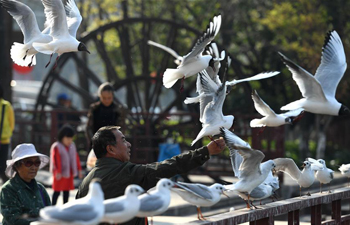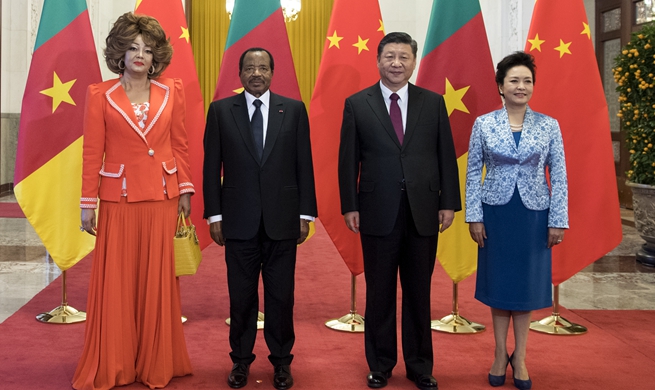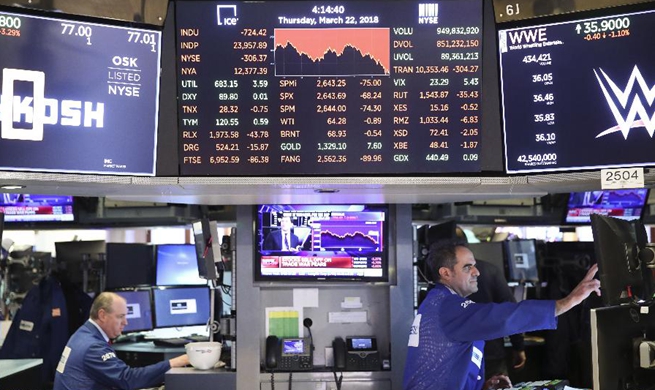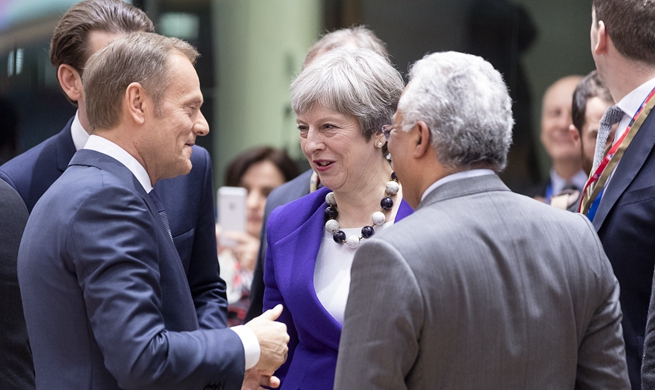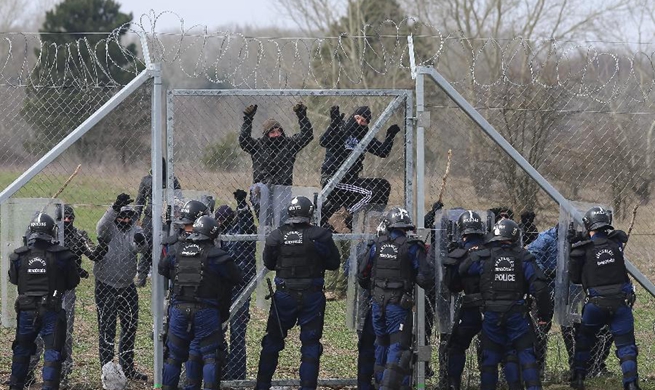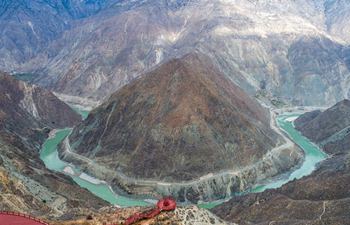TALLINN, March 23 (Xinhua) -- The international community needs a strong China for sustainable global economic growth as well as global peace and stability, said a senior Estonian diplomat Wednesday.
"The international community, including Estonia, welcomes China's continuous will to adhere to the principle of mutual respect for sovereignty and territorial integrity, to keep the peaceful development path and the mutually beneficial strategy of opening-up in developing diplomatic relations and economic and cultural exchanges with other countries," Andres Talvik, counsellor for the political department of the Estonian Ministry of Foreign Affairs, said in a written interview with Xinhua.
"We need a strong China for sustainable global economic growth, China who actively contributes to international efforts in fighting piracy and terrorism and for global peace and stability," said Talvik, who is also national coordinator of Estonia for cooperation between China and Central and Eastern European countries.
On the amendments to the Constitution and election of the new national leadership at China's two sessions which concluded earlier this week, Talvik said "these changes support China's further development and opening, strengthen stability and reflect common aspirations of all the Chinese people to strive for national rejuvenation."
"The policy of continuing reforms, reducing bureaucracy and opening China's market wider will positively influence the cooperation between China and Estonia," he said.
"China is by far our most important trading partner in Asia and our trade with China is steadily growing," said Talvik.
Since the Belt and Road Initiative was launched in 2013, a considerable number of countries and international organizations have endorsed it and showed interest in cooperation, Talvik noted.
"The Belt and Road Initiative will see more roads and railways and other infrastructure objects built to accelerate cross-border exchanges, helping to develop and tighten the connectivity of China with its immediate neighbors but also in a wider sense -- connectivity between Asia and Europe," he said.
"It helps to advance international cooperation and achieve the common development of all relevant countries for win-win results and mutual benefit," Talvik added.
China and Estonia signed a Memorandum of Understanding on cooperation within the framework of the Silk Road Economic Belt and the 21st Century Maritime Silk Road in 2017.
Estonian transport and logistics businesses have high expectations in this regard, according to the counsellor.
"Nevertheless, the Belt and Road is not only rails and roads, it also means a wide range of connectivity-related activities, like digital connectivity," Talvik noted.
"Estonia will apply its experience in e-governance and IT (Information Technology) and will contribute to development of the Digital Silk Road for information connectivity," he added.









